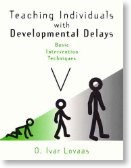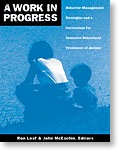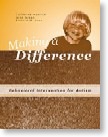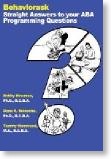The Dignity of a Job
18/09/11 18:39
Once your child has graduated from high school, whether in the typical educational stream or in the special education stream, the next question you need to ask is: How is he or she going to make a living?
Some of you may be thinking: “Is this realistic?” Yes, it is. Whether your child has Asperger’s Syndrome and can be completely independent at work, or is very severely affected, this is a topic that is worth considering. Furthermore, for those children who have benefitted tremendously from early intervention, this is a topic that is going to become more relevant as more children graduate high school with many marketable skills.
There are many different jobs people with ASD can do. Moreover, there is dignity to completing a job and getting paid for it. At one end of the spectrum are people who can get a job on their own, but may need a temporary job coach to help them learn the social rules regarding the work place so that they don’t inadvertently alienate coworkers. Then there are others who need to be placed in a job, taken to the job-site, coached on how to do the job, but can do the work independently, once trained. Even people who are severely autistic can be taught to work at a job in a team e.g., delivering newspapers. I recently came across an article about a determined transition coordinator, Ms. Stanton-Paule, who is transitioning children with autism into paid employment. We need an army of people like this woman!
Working and getting paid for it is important because it further includes people with autism into the fabric of society. I think that they deserve that chance, and whether they are employed full-time, or part-time, they need to be able to define themselves to the world as having a job and having the perks that go along with the job e.g., money.
Recently, I came across Aspiritech, a Chicago startup that is hiring adults on the autism spectrum to work as software testers. That’s great news because there are many talented people with ASD who are very employable in the computer field.
Here are companies that hire people with an autism spectrum disorder.
Aspiritech hires people in the United States:

Autism Works hires people in the United Kingdom:

Specialisterne hires people in Iceland, Denmark and Scotland:

Passwerk hires people in Belguim:
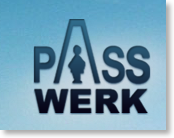
Laura Shumaker, wrote an interesting article on this topic. She lists a variety of non-profit organizations that work on the problem of employment for people with ASD, in addition to the organizations listed above. I think the solution is going to ultimately come from for profit companies that understand the benefit of hiring people on the autism spectrum. Not having to rely on government funding is preferable, since it is the profit motive that will keep these people working, not a benevolent bureaucrat.
Other possible employment ideas (across the range of capabilities for people on the spectrum) include the following:
• Computer Programming
• Graphic Design
• Musical Transcription
• Typing
• Book Cataloging (in libraries and used book stores)
• DVD/Video Cataloging in Video Stores
• Delivering Papers

These are jobs of which I am aware; however, I’m sure that there are many more not on this list. Please contact me if you have a lead so that we can broaden that list and provide more opportunities! Above is Elance, a Freelance website that has lots of opportunities available, depending upon skill set.
Some of you may be thinking: “Is this realistic?” Yes, it is. Whether your child has Asperger’s Syndrome and can be completely independent at work, or is very severely affected, this is a topic that is worth considering. Furthermore, for those children who have benefitted tremendously from early intervention, this is a topic that is going to become more relevant as more children graduate high school with many marketable skills.
There are many different jobs people with ASD can do. Moreover, there is dignity to completing a job and getting paid for it. At one end of the spectrum are people who can get a job on their own, but may need a temporary job coach to help them learn the social rules regarding the work place so that they don’t inadvertently alienate coworkers. Then there are others who need to be placed in a job, taken to the job-site, coached on how to do the job, but can do the work independently, once trained. Even people who are severely autistic can be taught to work at a job in a team e.g., delivering newspapers. I recently came across an article about a determined transition coordinator, Ms. Stanton-Paule, who is transitioning children with autism into paid employment. We need an army of people like this woman!
Working and getting paid for it is important because it further includes people with autism into the fabric of society. I think that they deserve that chance, and whether they are employed full-time, or part-time, they need to be able to define themselves to the world as having a job and having the perks that go along with the job e.g., money.
Recently, I came across Aspiritech, a Chicago startup that is hiring adults on the autism spectrum to work as software testers. That’s great news because there are many talented people with ASD who are very employable in the computer field.
Here are companies that hire people with an autism spectrum disorder.
Aspiritech hires people in the United States:

Autism Works hires people in the United Kingdom:

Specialisterne hires people in Iceland, Denmark and Scotland:

Passwerk hires people in Belguim:

Laura Shumaker, wrote an interesting article on this topic. She lists a variety of non-profit organizations that work on the problem of employment for people with ASD, in addition to the organizations listed above. I think the solution is going to ultimately come from for profit companies that understand the benefit of hiring people on the autism spectrum. Not having to rely on government funding is preferable, since it is the profit motive that will keep these people working, not a benevolent bureaucrat.
Other possible employment ideas (across the range of capabilities for people on the spectrum) include the following:
• Computer Programming
• Graphic Design
• Musical Transcription
• Typing
• Book Cataloging (in libraries and used book stores)
• DVD/Video Cataloging in Video Stores
• Delivering Papers

These are jobs of which I am aware; however, I’m sure that there are many more not on this list. Please contact me if you have a lead so that we can broaden that list and provide more opportunities! Above is Elance, a Freelance website that has lots of opportunities available, depending upon skill set.


